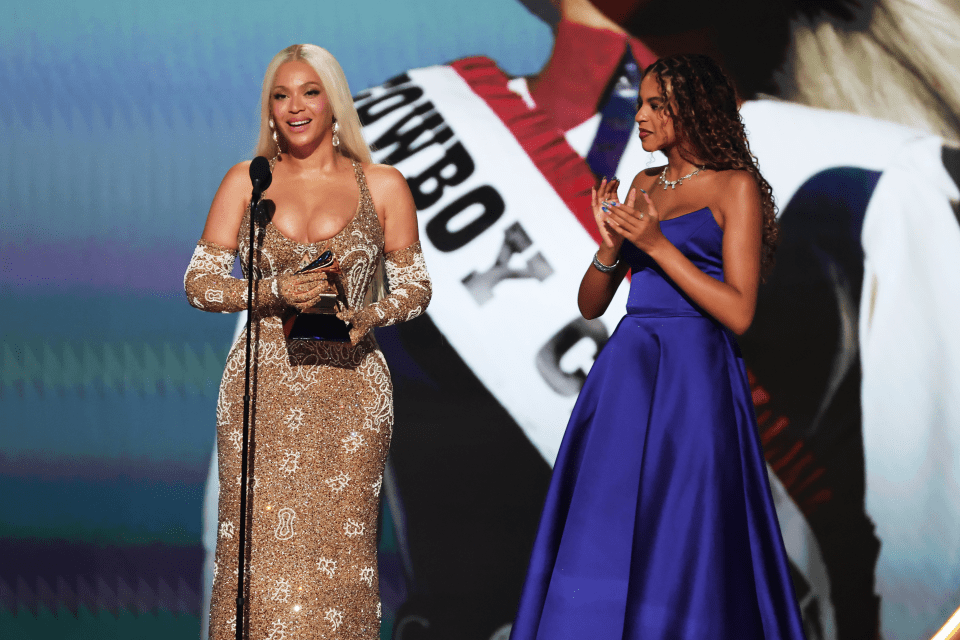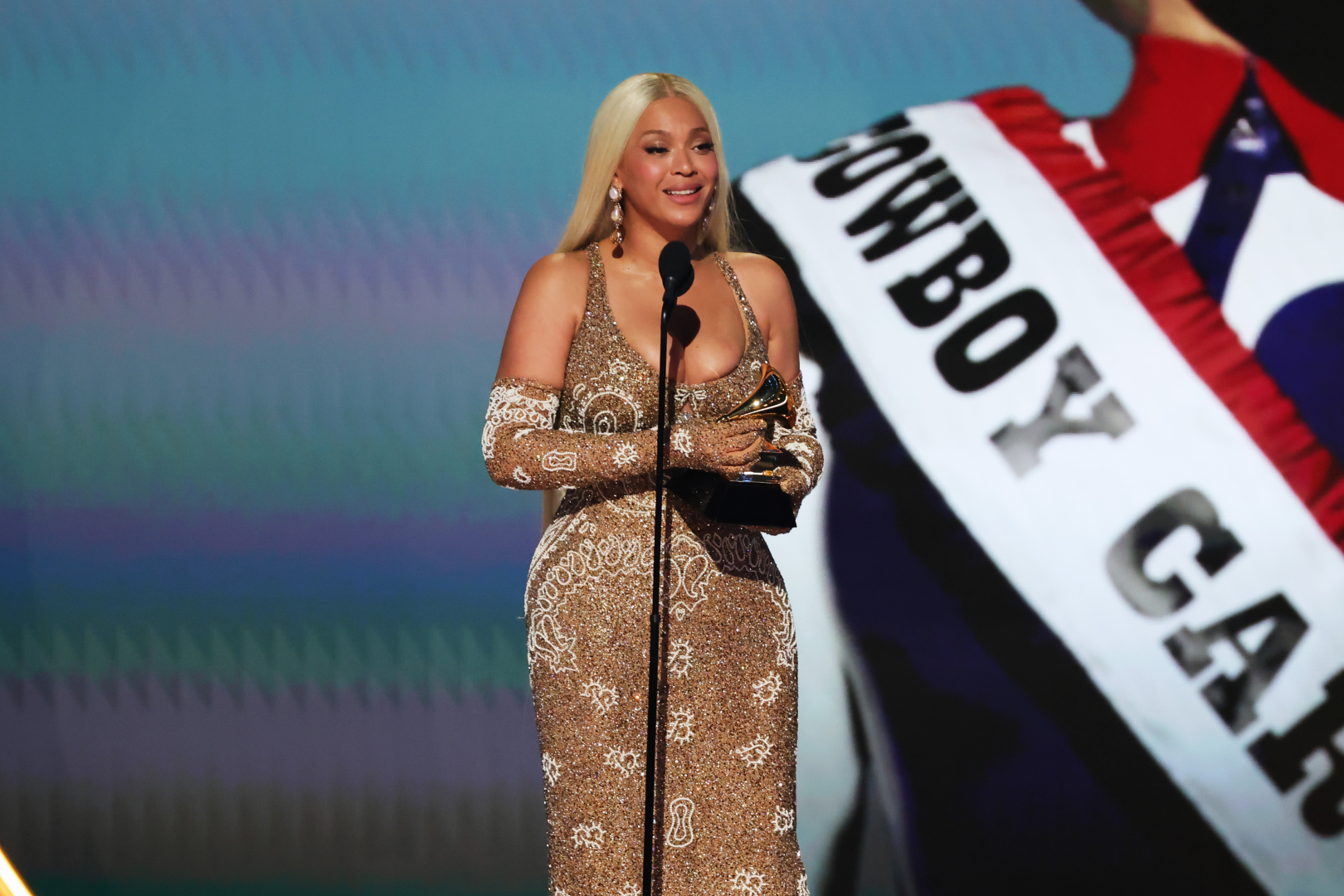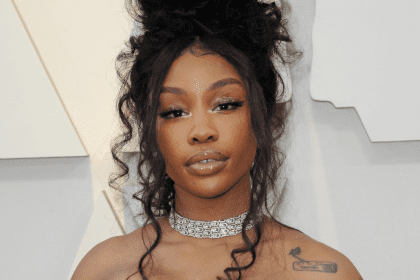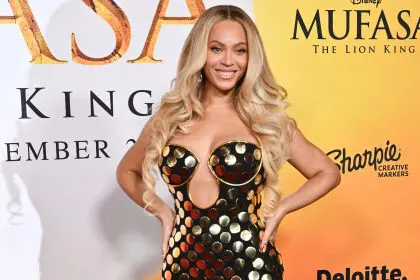Beyoncé has once again made history. At the 67th Annual Grammy Awards, she finally clinched the coveted “Album of the Year award” for Cowboy Carter, marking the first time in her illustrious career that she has received this honor. While she remains the most decorated Grammy winner of all time, this particular accolade had long eluded her, despite four previous nominations.
This win is not just about Beyoncé — it is a defining moment for country music, Black artists, and the ongoing conversation about representation in the genre. It is a full-circle moment that pays tribute to Black musicians’ deep, often unacknowledged contributions to country music. And, fittingly, it arrives at the beginning of Black History Month.
The roots of country music: A Black legacy
With its twangy guitars and storytelling traditions, country music has deep roots in Black communities’ musical expressions. The genre owes much to the blues, spirituals, and folk traditions that shaped early American music. The banjo, often associated with country and bluegrass, has West and Central African origins, brought to the Americas by enslaved Africans who preserved their musical traditions. Despite these diasporic, foundational contributions, country music evolved in a way that often excluded its Black pioneers from mainstream recognition.
For years, Black artists who dared to enter the country music arena faced resistance, yet they persevered, carving paths that made Beyoncé’s historic win possible.
In Alice Randall’s My Black Country: A Journey Through Country Music’s Black Past, Present, and Future, she writes about the “first family” of Black Country: Eslie Riddle, DeFord Bailey, Lil Hardin Armstrong, Ray Charles, Charley Pride, and Herb Jeffries. In an interview with the Cut, when asked, “Who would you identify as their contemporary descendants?” Randall answers, “Beyoncé is the child of Ray Charles because she’s coming in from another genre, deconstructing and reconstructing [it].”
Black women in country: Honoring the trailblazers
Beyoncé’s win builds upon the legacy of women like Linda Martell, Rissi Palmer, and other pioneers who fought for visibility in a genre that often sidelined them.
When she took the stage and gave her acceptance speech, Beyoncé said,
“I want to dedicate this to Ms. Martell … and I hope we just keep pushing forward, opening doors.”
A country music pioneer, Martell, now 83, was the first Black female artist to perform solo at the Grand Ole Opry in 1969. Her songs, including Color Him Father and Bad Case of the Blues, showcased her talent, yet the industry provided her little support. Cowboy Carter pays homage to Martell by featuring her on the tracks Spaghetti and The Linda Martell Show. Beyoncé’s decision to highlight Martell directly acknowledges the doors she opened decades ago.
Martell’s story is now reaching new audiences thanks to her granddaughter, Marquia Thompson. Thompson recently released a documentary titled Bad Case of the Country Blues, chronicling her grandmother’s struggles and triumphs. This renewed attention further cemented Martell’s place in country music history.
Palmer, another pioneering Black country artist, honored Martell by naming her 2007 album Color Me Country, a direct nod to Martell’s groundbreaking work. Palmer has used her platform, including her Apple Music radio show of the same name, to spotlight underrepresented voices in country music.
Vicki Vann, often called the “Cinderella of Country Music,” Jessie Mae Hemphill, a raw and soulful blues-country fusion artist, and Laura Love, whose “Folk-Funk” blends bluegrass with social consciousness, are all part of this lineage. These women and others have kept the spirit of Black country music alive, often outside of mainstream recognition.

The profundity of Beyoncé’s win
It is particularly significant that Beyoncé won this honor with a country album. Country music, for all its roots in Black culture, has often resisted acknowledging the contributions of Black artists. Cowboy Carter forces a reckoning with that history, demonstrating that country music is not defined by any one race or demographic.
This moment echoes the Grammy history that saw only three other Black women win Album of the Year before her: Natalie Cole (1992), Whitney Houston (1994), and Lauryn Hill (1999). Beyoncé now joins their ranks, making her the fourth Black woman to achieve this feat — a sobering reminder of how slowly change happens.
During her acceptance speech, Beyoncé, standing beside her daughter Blue Ivy Carter, kept her words brief yet powerful. “I just feel very full and very honored. It has been many, many years, and I just want to thank the Grammys, every songwriter, every collaborator, every producer, all of the hard work.”
Celestial affirmation: The Quincy Jones tribute
A stirring tribute to the late Quincy Jones brought the Grammy audience to its feet in an unforgettable moment of unity. Legendary duo Herbie Hancock and Stevie Wonder led a powerful rendition of We Are the World, joined by a full chorus of young singers — students from Pasadena Waldorf School in Altadena and Palisades Charter High School, both tragically lost in the recent Los Angeles fires.
The performance carried profound resonance, as We Are the World, co-written and co-produced by Lionel Richie for USA for Africa in 1985, remains one of the most significant humanitarian anthems in music history. Music scholar Randall, in My Black Country, has noted that Jones’ song production embodies the instrumentation and thematic depth of the Black country tradition, making its presence on this night all the more fitting.
As the voices swelled in harmony, it felt like a nod from “Q” himself — a celestial affirmation that this year’s Grammys were ushering in a reckoning, a healing, and a bold new chapter.
A celebration of Black excellence
Beyoncé’s Cowboy Carter was not just a triumph in the “Album of the Year” category. The album dominated the night, winning “Best Country Album” and “Best Country Duo/Group Performance” for “II Most Wanted” featuring Miley Cyrus. The full list of her Grammy nominations underscores the album’s genre-defying brilliance:
- Record of the Year: Texas Hold’ Em
- Album of the Year: Cowboy Carter (WIN)
- Song of the Year: Texas Hold’ Em
- Best Pop Solo Performance: Bodyguard
- Best Pop Duo/Group Performance: Levi’s Jeans featuring Post Malone
- Best Melodic Rap Performance: Spaghettii featuring Linda Martell and Shaboozey
- Best Country Solo Performance: 16 Carriages
- Best Country Duo/Group Performance: II Most Wanted featuring Miley Cyrus (WIN)
- Best Country Song: Texas Hold’ Em
- Best Country Album: Cowboy Carter (WIN)
- Best Americana Performance: Ya Ya
A legacy cemented
Beyoncé’s victory at the 2025 Grammys is a reminder of the power of persistence, artistry, and honoring one’s roots. She embodied a moment of reclamation as she stood in her sequined denim, cowboy hat in place.
Country music has always belonged to Black artists, even when the industry failed to acknowledge it. From the banjo’s African heritage to the blues foundations woven into the genre, the spirit of Black musicians has never been absent. Cowboy Carter is not an incursion into country music — it is a homecoming.
In a world where Black artists are often expected to fit into predetermined boxes, Beyoncé has once again broken the mold. This win is more than a Grammy; it is a cultural shift. It is a declaration that country music is for everyone and that the contributions of Black artists will no longer be overlooked.
As we celebrate Black History Month, let Beyoncé’s win serve as both a moment of joy and a call to action — to remember the pioneers, to uplift those following in their footsteps, and to keep pushing for change. Cowboy Carter is not just an album; it is a statement, a celebration, and a turning point in music history.











